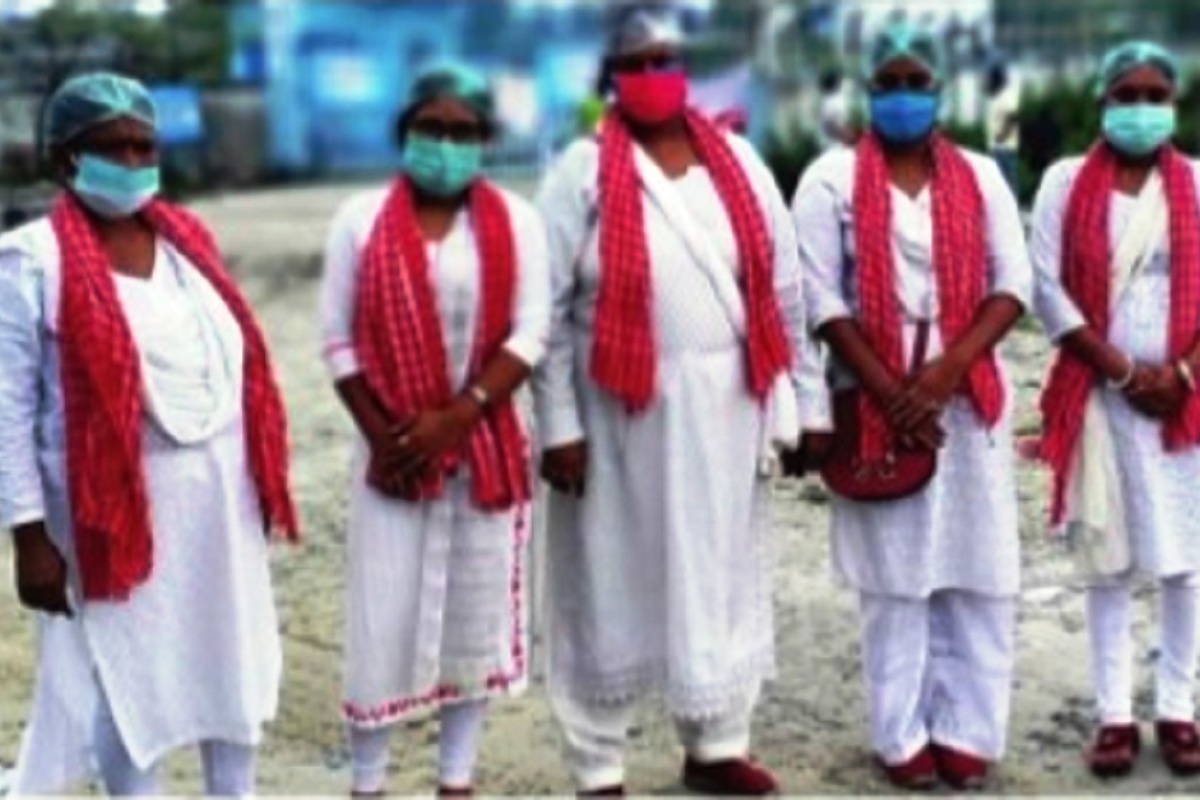Sudan clash: Death toll reaches 270, over 2,600 injured
Fighting continued in Sudan as forces loyal to duelling generals fought for strategic positions in the city and accused one another of breaking the ceasefire hours.
The members said they strictly follow the Covid protocols by wearing masks, head gears, gloves and using hand sanitisers.

(SNS)
“Cadavers do not transmit disease,” say the World Health Organisation guidelines for managing bodies of those who die of Covid-19. However, Covid-19 stigma has led to people being reluctant to be in contact with the deceased. The pandemic is upholding this slogan “no dignity in death” in the wake of elements of ignorance and irrational fears obstructing coronavirus funerals.
At 10.30 pm on Friday, a hearse entered the Kiranchandra Crematorium in Siliguri with a group of women clad in white churidar and gamcha (towel) around their necks. They brought down a body, while 10 of the women remained there to complete all the rituals for the next few hours. These women are rendering a yeoman’s service, setting an example at a time when relatives have been shying away from cremating the bodies of their near and dear ones, who have died of nonCovid reasons, due to fear of contracting the coronavirus, stigma, and financial constraints.
Advertisement
“It is almost daily that we perform the last rites of the dead, irrespective of time–day or night. We even arrange for transportation of the bodies of the persons who have died of Covid-19 for cremations at Sahudangi,” said Kaberi Chanda, who floated and is leading ‘Muktodhara’, an organisation, which carries out the last rites. Thirty-nine-year-old Mrs Chanda, a resident of Bharat Nagar in Siliguri, said she had been encouraged by her father, who used to take her along for cremations when she was barely six years old.
Advertisement
She has dared to get involved in such service which has been so far considered a male turf. “My father Dulal Chanda would always come forward to help others, sometimes financially in case of stringencies. He would join the last rites and love to take me with him. Since childhood, I used to go to the crematoriums. When grown up, I would actively take part in the last rites of the people, being the lone girl with my friends,” she added.
Setting aside taunts, abuse and barbs showered upon her relentlessly at the locality, Mrs Chanda encourages many other girls and young women to join her in this act contrapuntally. Now the organistation has as many as 22 women members. Most of the members belong to the lower income group in society.
Mrs Chanda, who actually works as a pathology technician at a private laboratory, spends part of her salary to run the organisation and also help other members. “We have even mortgaged our gold jewellery for a loan to meet the expenses of cremations. We would be highly benefited if we get financial help from somewhere to continue with our service,” she said.
It takes around Rs 4,500Rs 5,000 for one cremation, including the charges of the hearse, while they spend around Rs 7,000-Rs 8,000 for the hearse to transport the body of a Covid patient. Their service has earned them respect and applause from various quarters, and they have been felicitated by different organisations.
Since February last year, they have cremated 428 bodies. “I have a son, but he is mentally not well. But whenever there is a call, I get ready. On an average, we cremate threefour bodies a day, but we have also cremated 11 bodies in a single day,” said Bharati Kanjilal, a member of the group.
“We are facing a lot of hardship, and whatever the charges we get for the cremation, we try to save it and spend it for the next cremation. We also perform the last rites free of cost for those whose family members are unable to pay,” said Mrs Kanjilal.
A second-year student at the Surya Sen Mahavidyalaya, and another member of the group, Rubi Das, had lost her father, and her mother is now unable to work as a domestic help, as the employers asked her not to report for work fearing infection. “It is a fact that many women do not visit the crematoriums since it is thought to be a man’s job. But I feel there should not be any gender discrimination. We are also doing the same now. It gives me immense satisfaction when we can ensure a dignified funeral of the deceased,” Ms Das said.
The members said they strictly follow the Covid protocols by wearing masks, head gears, gloves and using hand sanitisers. Twenty-three-year-old Anima Sarkar Chanda said she got encouragement from her mother-in-law. Her husband works in a hardware store. “We face vilifications and jibe often, but they hardly break our morale. We do not fear social stigma or taboo since we did not do anything illegal or wrong. I get the support of my mother-in-law and that means a lot. I get an inner satisfaction in doing this service along with the other women,” the young woman quibbles.
Originally hailing from Cooch Behar district, she came to Siliguri after her marriage two years ago. Sharing their days of toil, the members reveal they had to sometimes spend entire nights on several occasions at the crematorium to wait in the queues.
“This bring along many difficulties for us, and we will remain grateful if rules are framed to give the women group first priority for cremation,” Mrs Chanda said. “However, we do not want people to die–Covid or nonCovid. Covid-19 has taken many lives. The devastation owing to this pandemic should come to an end,” the group members all said.
Advertisement